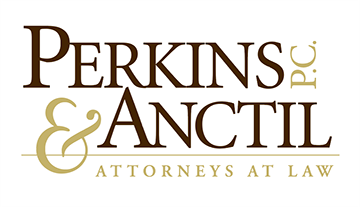By Kimberly A. Alley, Esq.
The first doses of the COVID-19 vaccines are being administered. So – what happens now at work? Are employees required to vaccinate? What if a co-worker refuses to vaccinate? What if my religion prohibits vaccinations? In response to these and other looming questions, the federal government recently issued guidance and gave the green light for employers to require immunization for most workers. Employers may also require proof that an employee was vaccinated.
On December 16, 2020, the Equal Employment Opportunity Commission (“EEOC”) which enforces federal workplace discrimination laws recognized that employers are entitled — and required — to ensure a safe workplace in which “an individual shall not pose a direct threat to the health or safety of individuals in the workplace.” The EEOC’s latest guidance clarifies that a vaccination does not constitute a “medical exam” pursuant to the Americans with Disabilities Act (“ADA”). The ADA generally limits an employer’s ability to require workers to undergo a medical examination. Since the vaccination is not considered a “medical exam,” an employer may require vaccination without violating the ADA. (The ADA applies to employers with 15 or more employees; although M.G.L. c. 151B, Massachusetts Fair Employment Practices Act, covers employers of 6 or more.) Simply put — that means a company can require that employees be vaccinated for COVID-19 without violating employees’ rights.
However, there are exceptions. The limitations are tied to the ADA and Title VII of the Civil Rights Act of 1964 (“Title VII”). Employees with a disability or “sincerely held” religious beliefs are exempt from inoculation. An exempt employee may request an accommodation. If requested, the employer has an obligation to determine if the requested accommodation is reasonably possible without imposing an “undue hardship” on the employer. Examples of a reasonable accommodation may be wearing a mask or other personal protective equipment, using a protective barrier, working from home, or working separately from other people. If the accommodation does not pose an “undue hardship” (i.e. one that poses a “significant difficulty or expense”) for the employer and can achieve the same level of safety as the vaccine, the accommodation must be allowed. The employer cannot exclude the employee from working — or take any other action — even if an exempt employer poses a risk to the workplace unless there is no way to provide a reasonable accommodation that would reduce this risk to others.
An employer may prohibit the worker from physically entering the workplace, however, if the unvaccinated individual poses a potential threat to themselves or others. This is consistent with prior EEOC guidance that allows an employer to bar an employee physically from the workplace if he or she refuses to comply with COVID-19 safety precautions. The right to bar the unvaccinated employee from the physical workplace does not necessarily mean an employer may discharge a worker who declines to be vaccinated. The employee may be eligible for unpaid leave or other similar entitlements under federal, state, and local laws.
A case by case review of each request for accommodation will be necessary. In general, if a job cannot be done remotely and there is no reasonable way to accommodate the request without undue hardship, an employer will likely be deemed justified in terminating the employment. Most employment is “at will” meaning that either the employer (or employee) can terminate the employment for any non-discriminatory reason. An employer also has the right to set health and safety working conditions, which may include a COVID vaccination, within limits.
The potential medical and religious accommodations are just two factors employers will have to consider when deciding to implement a vaccination requirement. Given all the different concerns employers will need to balance with a potential COVID-19 vaccine, many might choose to simply recommend their workers get immunized rather than make vaccination a condition of employment. A practical approach is often the best. Employers are more likely to obtain compliance simply by encouraging their workers to get immunized rather than creating a company-wide mandate.
The EEOC provides guidance concerning employers’ right to inquire about COVID-19 symptoms and other pandemic related issues relative to the workplace. For further information from the EEOC on COVID-19, please see www.eeoc.gov/coronavirus.
Attorney Kimberly Alley is a partner at Perkins & Anctil, P.C. who routinely handles litigation and employment law matters. Please feel free to contact her at [email protected] if you have any questions.
